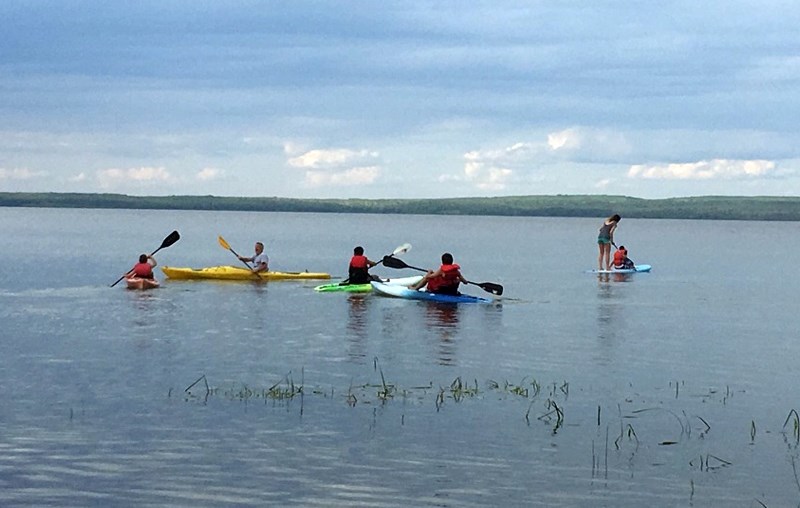Kids with Fetal Alcohol Spectrum Disorder (FASD) are getting a chance to go to summer camp.
The overnight camp is run by the Lakeland Centre for FASD (LCFASD), and has been helping kids from across the region for 11 years.
Last year was their first with their own camp at French Bay, and it couldn't have gone any better.
“We had about 45 children over a six-week period. We divide the children into one-week camps based on age and gender,” Audrey McFarlane, executive director of LCFASD explained.
For each group, there were four full-time camp staff on-hand to help them with their camp activities. They stayed in the cabin with the campers, and made sure everyone was having a good time.
“They do all kinds of fun activities that any other campers would do, but in their small groups so they can experience that success,” McFarlane said.
Kids diagnosed with FASD can often struggle in large groups. By having campers come eight to 10 at a time, they're given the one-on-one attention they need to succeed. This year, campers are once again being treated to the outdoors.
“These are children that are often very impulsive, they say things and do things without thinking, and sometimes they're processing things slowly. They might not catch the commands. We organize their days so they are very routine and structured. They can come to count on what happens each day so they don't have anxiety. Within that, we can change up the activities,” noted McFarlane.
Their day is like any other camp. They wake up, have breakfast, and start their activities, which can vary from kayaking, paddle boarding, and arts and crafts.
By having a high staff to camper ratio, they're able to guarantee the campers are respectful and are having fun.
Prior to getting their camp, the LCFASD camp was held at the Girl Guides campground. Unfortunately, they outgrew the space and were looking for something new.
“The kids love the new cabin. It has running water, and it's really close to the lake. They can go swimming, kayaking, and paddle boarding regularly. They love the space. The kids have lots of room and spaces to go, to either be within the group, or not,” McFarlane expressed. “Often these kids love being in the outdoors, they have lots of energy, but they're not able to participate in large group settings. They're often the kids who are in trouble or are sent home early from regular summer camps, and even in school they struggle with the unstructured time.”
Being able to go to camp and do things other campers would do is significant, McFarlane said.
“This is really important for their self-esteem. It's important that they have a good experience, are seen as competent and worthy, and that they have strengths that can hopefully carry them through more difficult times,” she continued. “The kids learn about their strengths and a little bit about their disability and how it is impacting them. They come back better aware and having a positive experience carries them a long way.”
The camp gives not only the kids a break, but also their parents.
“Parents don't often get a break. They love having a trusted break, and they know that they aren't going to get called and their kids aren't going to be sent home. For them, it's respite. They also see that their kids are coming back happy, and that they've had a good experience. They talk incessantly about all of the activities and field trips they were able to take part in. It's nice for the parents to see the kids have a positive experience.”
The camp wouldn't be possible without the community. It costs LCFASD anywhere from $50,000 to $60,000 per year to run.
The government doesn't fund the LCFASD camp except through the Canada Supports Grant program that pays for their camp staff. Because of this, they rely heavily on community donations.
Organizations and individuals have gone beyond the standard donation and have sponsored kids with FASD who couldn't afford to go to the camp otherwise.
“It's very much appreciated for the families to be able to have that opportunity,” McFarlane said.



